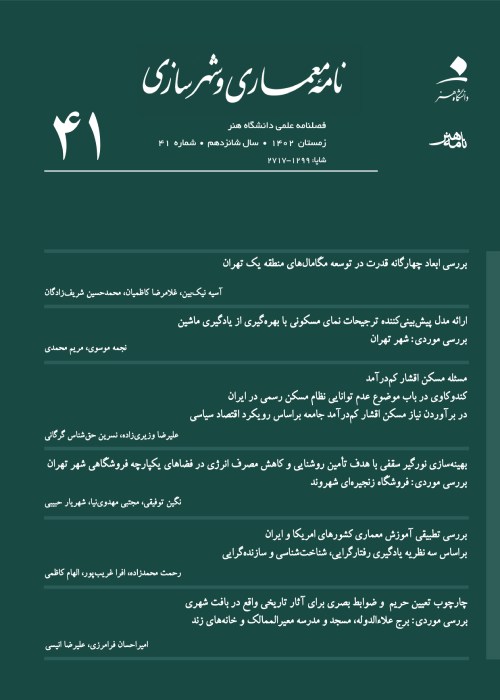Typology of Research Methods in Environmental Studies about Children
Author(s):
Abstract:
Children are different from adults in physical and psychological aspects. They use different physical spaces and facilities too and therefore they should be expected to experience different perception and evaluation of the environment rather than adult users. The existing study shows that designers, planners and psychologists have paid special attention to know how children and adults perceive and behave in their environments. However, the theories and observations have not been able yet to achieve a deep scientific response to understand children’s world. Children lack sufficient experience of various spaces. Therefore, it seems that examining the perceptive and cognitive capabilities of children with respect to space can yield better understanding and selection of the research methods. Meanwhile, it is important and necessary to understand the scientific methods of research on children, as prerequisites for selecting these methods. There is an extensive need to a valid and reliable approach, which may be named as “scientific approach”, in the mentioned field. The main objective of this article is to explore the way of scientific research is conducted on children subjects and to introduce some of the suitable framework and methods of environmental studies about children in hypothesized environments. Ideally, this manuscript would be able to respond to major questions associated with selection of suitable data collection and analysis methods, once the research problem and objectives in an environment of interest and the age group of interest were determined. Assuming that ability to carry out active discovery in an environment boosts the spatial perception of children, this article aim to clarify research in environmental studies of children, first by exploring the way spatial knowledge is obtained by children at various developmental stages. At the second step, the article introduces various scientific approaches within positivist (quantitative) and constructivism (qualitative) paradigms in the related environmental studies, in order to shed light on these approaches and show how they are subject to prejudice and subjective interpretation. Due to the importance of application of qualitative approaches in understanding the children’s world which can yield optimum understanding as a result of dialectic interaction of the environment with children’s minds. The article will finally present some of the qualitative methods of research which suitable for various developmental stages of children. The authors conclude that creativity in a research process depends on the application of mixed approaches and implementation ofa spectrum of research methods on children’s experiences, simultaneously. This will provide the opportunity for supplementary understanding, difficult to achieve by reliance on a single data collection method. The outcome of this article is a presentation of the typology of research methods in the mentioned issue.
Keywords:
Language:
Persian
Published:
Journal of Architecture and Urban Planning, Volume:5 Issue: 9, 2013
Page:
87
magiran.com/p1162214
دانلود و مطالعه متن این مقاله با یکی از روشهای زیر امکان پذیر است:
اشتراک شخصی
با عضویت و پرداخت آنلاین حق اشتراک یکساله به مبلغ 1,390,000ريال میتوانید 70 عنوان مطلب دانلود کنید!
اشتراک سازمانی
به کتابخانه دانشگاه یا محل کار خود پیشنهاد کنید تا اشتراک سازمانی این پایگاه را برای دسترسی نامحدود همه کاربران به متن مطالب تهیه نمایند!
توجه!
- حق عضویت دریافتی صرف حمایت از نشریات عضو و نگهداری، تکمیل و توسعه مگیران میشود.
- پرداخت حق اشتراک و دانلود مقالات اجازه بازنشر آن در سایر رسانههای چاپی و دیجیتال را به کاربر نمیدهد.
دسترسی سراسری کاربران دانشگاه پیام نور!
اعضای هیئت علمی و دانشجویان دانشگاه پیام نور در سراسر کشور، در صورت ثبت نام با ایمیل دانشگاهی، تا پایان فروردین ماه 1403 به مقالات سایت دسترسی خواهند داشت!
In order to view content subscription is required
Personal subscription
Subscribe magiran.com for 70 € euros via PayPal and download 70 articles during a year.
Organization subscription
Please contact us to subscribe your university or library for unlimited access!


